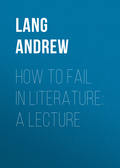
Lang Andrew
The Violet Fairy Book
At that moment the ogress came up and asked him, ‘Did you give my message to your father and mother?’
‘Yes, dear aunt, I did.’
‘And what did they say?’
‘Take it away at once!’
So she took him.
But when dinner-time came, and the boy did not return, his father and mother knew that he would never come back, and they sat down and wept all day. At last Halfman rose up and said to his wife, ‘Be comforted; we will wait a year, and then I will go to the ogress and see the boy, and how he is cared for.’
‘Yes, that will be the best,’ said she.
The year passed away, then Halfman saddled his horse, and rode to the place where the ogress had found him sleeping. She was not there, but not knowing what to do next, he got off his horse and waited. About midnight she suddenly stood before him.
‘Halfman, why did you come here?’ said she.
‘I have a question I want to ask you.’
‘Well, ask it; but I know quite well what it is. Your wife wishes you to ask whether I shall carry off your second son as I did the first.’
‘Yes, that is it,’ replied Halfman. Then he seized her hand and said, ‘Oh, let me see my son, and how he looks, and what he is doing.’
The ogress was silent, but stuck her staff hard in the earth, and the earth opened, and the boy appeared and said, ‘Dear father, have you come too?’ And his father clasped him in his arms, and began to cry. But the boy struggled to be free, saying ‘Dear father, put me down. I have got a new mother, who is better than the old one; and a new father, who is better than you.’
Then his father sat him down and said, ‘Go in peace, my boy, but listen first to me. Tell your father the ogre and your mother the ogress, that never more shall they have any children of mine.’
‘All right,’ replied the boy, and called ‘Mother!’
‘What is it?’
‘You are never to take away any more of my father and mother’s children!’
‘Now that I have got you, I don’t want any more,’ answered she.
Then the boy turned to his father and said, ‘Go in peace, dear father, and give my mother greeting and tell her not to be anxious any more, for she can keep all her children.’
And Halfman mounted his horse and rode home, and told his wife all he had seen, and the message sent by Mohammed – Mohammed the son of Halfman, the son of the judge.
(Marchen und Gedichte aus der Stadt Tripolis. Hans von Stumme.)
THE PRINCE WHO WANTED TO SEE THE WORLD
There was once a king who had only one son, and this young man tormented his father from morning till night to allow him to travel in far countries. For a long time the king refused to give him leave; but at last, wearied out, he granted permission, and ordered his treasurer to produce a large sum of money for the prince’s expenses. The youth was overjoyed at the thought that he was really going to see the world, and after tenderly embracing his father he set forth.
He rode on for some weeks without meeting with any adventures; but one night when he was resting at an inn, he came across another traveller, with whom he fell into conversation, in the course of which the stranger inquired if he never played cards. The young man replied that he was very fond of doing so. Cards were brought, and in a very short time the prince had lost every penny he possessed to his new acquaintance. When there was absolutely nothing left at the bottom of the bag, the stranger proposed that they should have just one more game, and that if the prince won he should have the money restored to him, but in case he lost, should remain in the inn for three years, and besides that should be his servant for another three. The prince agreed to those terms, played, and lost; so the stranger took rooms for him, and furnished him with bread and water every day for three years.
The prince lamented his lot, but it was no use; and at the end of three years he was released and had to go to the house of the stranger, who was really the king of a neighbouring country, and be his servant. Before he had gone very far he met a woman carrying a child, which was crying from hunger. The prince took it from her, and fed it with his last crust of bread and last drop of water, and then gave it back to its mother. The woman thanked him gratefully, and said:
‘Listen, my lord. You must walk straight on till you notice a very strong scent, which comes from a garden by the side of the road. Go in and hide yourself close to a tank, where three doves will come to bathe. As the last one flies past you, catch hold of its robe of feathers, and refuse to give it back till the dove has promised you three things.’
The young man did as he was told, and everything happened as the woman had said. He took the robe of feathers from the dove, who gave him in exchange for it a ring, a collar, and one of its own plumes, saying: ‘When you are in any trouble, cry “Come to my aid, O dove!” I am the daughter of the king you are going to serve, who hates your father and made you gamble in order to cause your ruin.’
Thus the prince went on his way, and in course of time he arrived at the king’s palace. As soon as his master knew he was there, the young man was sent for into his presence, and three bags were handed to him with these words:
‘Take this wheat, this millet, and this barley, and sow them at once, so that I may have loaves of them all to-morrow.’
The prince stood speechless at this command, but the king did not condescend to give any further explanation, and when he was dismissed the young man flew to the room which had been set aside for him, and pulling out his feather, he cried: ‘Dove, dove! be quick and come.’
‘What is it?’ said the dove, flying in through the open window, and the prince told her of the task before him, and of his despair at being unable to accomplish it. ‘Fear nothing; it will be all right,’ replied the dove, as she flew away again.
The next morning when the prince awoke he saw the three loaves standing beside his bed. He jumped up and dressed, and he was scarcely ready when a page arrived with the message that he was to go at once into the king’s chamber. Taking the loaves in his arm he followed the boy, and, bowing low, laid them down before the king. The monarch looked at the loaves for a moment without speaking, then he said:
‘Good. The man who can do this can also find the ring which my eldest daughter dropped into the sea.’
The prince hastened back to his room and summoned the dove, and when she heard this new command she said: ‘Now listen. To-morrow take a knife and a basin and go down to the shore and get into a boat you will find there.’
The young man did not know what he was to do when he was in the boat or where he was to go, but as the dove had come to his rescue before, he was ready to obey her blindly.
When he reached the boat he found the dove perched on one of the masts, and at a signal from her he put to sea; the wind was behind them and they soon lost sight of land. The dove then spoke for the first time and said, ‘Take that knife and cut off my head, but be careful that not a single drop of blood falls to the ground. Afterwards you must throw it into the sea.’
Wondering at this strange order, the prince picked up his knife and severed the dove’s head from her body at one stroke. A little while after a dove rose from the water with a ring in its beak, and laying it in the prince’s hand, dabbled itself with the blood that was in the basin, when its head became that of a beautiful girl. Another moment and it had vanished completely, and the prince took the ring and made his way back to the palace.
The king stared with surprise at the sight of the ring, but he thought of another way of getting rid of the young man which was surer even than the other two.
‘This evening you will mount my colt and ride him to the field, and break him in properly.’
The prince received this command as silently as he had received the rest, but no sooner was he in his room than he called for the dove, who said: ‘Attend to me. My father longs to see you dead, and thinks he will kill you by this means. He himself is the colt, my mother is the saddle, my two sisters are the stirrups, and I am the bridle. Do not forget to take a good club, to help you in dealing with such a crew.’
So the prince mounted the colt, and gave him such a beating that when he came to the palace to announce that the animal was now so meek that it could be ridden by the smallest child, he found the king so bruised that he had to be wrapped in cloths dipped in vinegar, the mother was too stiff to move, and several of the daughters’ ribs were broken. The youngest, however, was quite unharmed. That night she came to the prince and whispered to him:
‘Now that they are all in too much pain to move, we had better seize our chance and run away. Go to the stable and saddle the leanest horse you can find there.’ But the prince was foolish enough to choose the fattest: and when they had started and the princess saw what he had done, she was very sorry, for though this horse ran like the wind, the other flashed like thought. However, it was dangerous to go back, and they rode on as fast as the horse would go.
In the night the king sent for his youngest daughter, and as she did not come he sent again; but she did not come any the more for that. The queen, who was a witch, discovered that her daughter had gone off with the prince, and told her husband he must leave his bed and go after them. The king got slowly up, groaning with pain, and dragged himself to the stables, where he saw the lean horse still in his stall.
Leaping on his back he shook the reins, and his daughter, who knew what to expect and had her eyes open, saw the horse start forward, and in the twinkling of an eye changed her own steed into a cell, the prince into a hermit, and herself into a nun.
When the king reached the chapel, he pulled up his horse and asked if a girl and a young man had passed that way. The hermit raised his eyes, which were bent on the ground, and said that he had not seen a living creature. The king, much disgusted at this news, and not knowing what to do, returned home and told his wife that, though he had ridden for miles, he had come across nothing but a hermit and a nun in a cell.
‘Why those were the runaways, of course,’ she cried, flying into a passion, ‘and if you had only brought a scrap of the nun’s dress, or a bit of stone from the wall, I should have had them in my power.’
At these words the king hastened back to the stable, and brought out the lean horse who travelled quicker than thought. But his daughter saw him coming, and changed her horse into a plot of ground, herself into a rose-tree covered with roses, and the prince into a gardener. As the king rode up, the gardener looked up from the tree which he was trimming and asked if anything was the matter. ‘Have you seen a young man and a girl go by?’ said the king, and the gardener shook his head and replied that no one had passed that way since he had been working there. So the king turned his steps homewards and told his wife.
‘Idiot!’ cried she, ‘if you had only brought me one of the roses, or a handful of earth, I should have had them in my power. But there is no time to waste. I shall have to go with you myself.’
The girl saw them from afar, and a great fear fell on her, for she knew her mother’s skill in magic of all kinds. However, she determined to fight to the end, and changed the horse into a deep pool, herself into an eel, and the prince into a turtle. But it was no use. Her mother recognised them all, and, pulling up, asked her daughter if she did not repent and would not like to come home again. The eel wagged ‘No’ with her tail, and the queen told her husband to put a drop of water from the pool into a bottle, because it was only by that means that she could seize hold of her daughter. The king did as he was bid, and was just in the act of drawing the bottle out of the water after he had filled it, when the turtle knocked against and spilt it all. The king then filled it a second time, but again the turtle was too quick for him.
The queen saw that she was beaten, and called down a curse on her daughter that the prince should forget all about her. After having relieved her feelings in this manner, she and the king went back to the palace.
The others resumed their proper shapes and continued their journey, but the princess was so silent that at last the prince asked her what was the matter. ‘It is because I know you will soon forget all about me,’ said she, and though he laughed at her and told her it was impossible, she did not cease to believe it.
They rode on and on and on, till they reached the end of the world, where the prince lived, and leaving the girl in an inn he went himself to the palace to ask leave of his father to present her to him as his bride; but in his joy at seeing his family once more he forgot all about her, and even listened when the king spoke of arranging a marriage for him.
When the poor girl heard this she wept bitterly, and cried out, ‘Come to me, my sisters, for I need you badly!’
In a moment they stood beside her, and the elder one said, ‘Do not be sad, all will go well,’ and they told the innkeeper that if any of the king’s servants wanted any birds for their master they were to be sent up to them, as they had three doves for sale.
And so it fell out, and as the doves were very beautiful the servant bought them for the king, who admired them so much that he called his son to look at them. The prince was much pleased with the doves and was coaxing them to come to him, when one fluttered on to the top of the window and said, ‘If you could only hear us speak, you would admire us still more.’
And another perched on a table and added, ‘Talk away, it might help him to remember!’
And the third flew on his shoulder and whispered to him, ‘Put on this ring, prince, and see if it fits you.’
And it did. Then they hung a collar round his neck, and held a feather on which was written the name of the dove. And at last his memory came back to him, and he declared he would marry the princess and nobody else. So the next day the wedding took place, and they lived happy till they died.
(From the Portuguese.)
VIRGILIUS THE SORCERER
Long, long ago there was born to a Roman knight and his wife Maja a little boy called Virgilius. While he was still quite little, his father died, and the kinsmen, instead of being a help and protection to the child and his mother, robbed them of their lands and money, and the widow, fearing that they might take the boy’s life also, sent him away to Spain, that he might study in the great University of Toledo.
Virgilius was fond of books, and pored over them all day long. But one afternoon, when the boys were given a holiday, he took a long walk, and found himself in a place where he had never been before. In front of him was a cave, and, as no boy ever sees a cave without entering it, he went in. The cave was so deep that it seemed to Virgilius as if it must run far into the heart of the mountain, and he thought he would like to see if it came out anywhere on the other side. For some time he walked on in pitch darkness, but he went steadily on, and by-and-by a glimmer of light shot across the floor, and he heard a voice calling, ‘Virgilius! Virgilius!’
‘Who calls?’ he asked, stopping and looking round.
‘Virgilius!’ answered the voice, ‘do you mark upon the ground where you are standing a slide or bolt?’
‘I do,’ replied Virgilius.
‘Then,’ said the voice, ‘draw back that bolt, and set me free.’
‘But who are you?’ asked Virgilius, who never did anything in a hurry.
‘I am an evil spirit,’ said the voice, ‘shut up here till Doomsday, unless a man sets me free. If you will let me out I will give you some magic books, which will make you wiser than any other man.’
Now Virgilius loved wisdom, and was tempted by these promises, but again his prudence came to his aid, and he demanded that the books should be handed over to him first, and that he should be told how to use them. The evil spirit, unable to help itself, did as Virgilius bade him, and then the bolt was drawn back. Underneath was a small hole, and out of this the evil spirit gradually wriggled himself; but it took some time, for when at last he stood upon the ground he proved to be about three times as large as Virgilius himself, and coal black besides.
‘Why, you can’t have been as big as that when you were in the hole!’ cried Virgilius.
‘But I was!’ replied the spirit.
‘I don’t believe it!’ answered Virgilius.
‘Well, I’ll just get in and show you,’ said the spirit, and after turning and twisting, and curling himself up, then he lay neatly packed into the hole. Then Virgilius drew the bolt, and, picking the books up under his arm, he left the cave.
For the next few weeks Virgilius hardly ate or slept, so busy was he in learning the magic the books contained. But at the end of that time a messenger from his mother arrived in Toledo, begging him to come at once to Rome, as she had been ill, and could look after their affairs no longer.
Though sorry to leave Toledo, where he was much thought of as showing promise of great learning, Virgilius would willingly have set out at once, but there were many things he had first to see to. So he entrusted to the messenger four pack-horses laden with precious things, and a white palfrey on which she was to ride out every day. Then he set about his own preparations, and, followed by a large train of scholars, he at length started for Rome, from which he had been absent twelve years.
His mother welcomed him back with tears in her eyes, and his poor kinsmen pressed round him, but the rich ones kept away, for they feared that they would no longer be able to rob their kinsman as they had done for many years past. Of course, Virgilius paid no attention to this behaviour, though he noticed they looked with envy on the rich presents he bestowed on the poorer relations and on anyone who had been kind to his mother.
Soon after this had happened the season of tax-gathering came round, and everyone who owned land was bound to present himself before the emperor. Like the rest, Virgilius went to court, and demanded justice from the emperor against the men who had robbed him. But as these were kinsmen to the emperor he gained nothing, as the emperor told him he would think over the matter for the next four years, and then give judgment. This reply naturally did not satisfy Virgilius, and, turning on his heel, he went back to his own home, and, gathering in his harvest, he stored it up in his various houses.
When the enemies of Virgilius heard of this, they assembled together and laid siege to his castle. But Virgilius was a match for them. Coming forth from the castle so as to meet them face to face, he cast a spell over them of such power that they could not move, and then bade them defiance. After which he lifted the spell, and the invading army slunk back to Rome, and reported what Virgilius had said to the emperor.
Now the emperor was accustomed to have his lightest word obeyed, almost before it was uttered, and he hardly knew how to believe his ears. But he got together another army, and marched straight off to the castle. But directly they took up their position Virgilius girded them about with a great river, so that they could neither move hand nor foot, then, hailing the emperor, he offered him peace, and asked for his friendship. The emperor, however, was too angry to listen to anything, so Virgilius, whose patience was exhausted, feasted his own followers in the presence of the starving host, who could not stir hand or foot.
Things seemed getting desperate, when a magician arrived in the camp and offered to sell his services to the emperor. His proposals were gladly accepted, and in a moment the whole of the garrison sank down as if they were dead, and Virgilius himself had much ado to keep awake. He did not know how to fight the magician, but with a great effort struggled to open his Black Book, which told him what spells to use. In an instant all his foes seemed turned to stone, and where each man was there he stayed. Some were half way up the ladders, some had one foot over the wall, but wherever they might chance to be there every man remained, even the emperor and his sorcerer. All day they stayed there like flies upon the wall, but during the night Virgilius stole softly to the emperor, and offered him his freedom, as long as he would do him justice. The emperor, who by this time was thoroughly frightened, said he would agree to anything Virgilius desired. So Virgilius took off his spells, and, after feasting the army and bestowing on every man a gift, bade them return to Rome. And more than that, he built a square tower for the emperor, and in each corner all that was said in that quarter of the city might be heard, while if you stood in the centre every whisper throughout Rome would reach your ears.
Having settled his affairs with the emperor and his enemies, Virgilius had time to think of other things, and his first act was to fall in love! The lady’s name was Febilla, and her family was noble, and her face fairer than any in Rome, but she only mocked Virgilius, and was always playing tricks upon him. To this end, she bade him one day come to visit her in the tower where she lived, promising to let down a basket to draw him up as far as the roof. Virgilius was enchanted at this quite unexpected favour, and stepped with glee into the basket. It was drawn up very slowly, and by-and-by came altogether to a standstill, while from above rang the voice of Febilla crying, ‘Rogue of a sorcerer, there shalt thou hang!’ And there he hung over the market-place, which was soon thronged with people, who made fun of him till he was mad with rage. At last the emperor, hearing of his plight, commanded Febilla to release him, and Virgilius went home vowing vengeance.
The next morning every fire in Rome went out, and as there were no matches in those days this was a very serious matter. The emperor, guessing that this was the work of Virgilius, besought him to break the spell. Then Virgilius ordered a scaffold to be erected in the market-place, and Febilla to be brought clothed in a single white garment. And further, he bade every one to snatch fire from the maiden, and to suffer no neighbour to kindle it. And when the maiden appeared, clad in her white smock, flames of fire curled about her, and the Romans brought some torches, and some straw, and some shavings, and fires were kindled in Rome again.
For three days she stood there, till every hearth in Rome was alight, and then she was suffered to go where she would.
But the emperor was wroth at the vengeance of Virgilius, and threw him into prison, vowing that he should be put to death. And when everything was ready he was led out to the Viminal Hill, where he was to die.
He went quietly with his guards, but the day was hot, and on reaching his place of execution he begged for some water. A pail was brought, and he, crying ‘Emperor, all hail! seek for me in Sicily,’ jumped headlong into the pail, and vanished from their sight.
For some time we hear no more of Virgilius, or how he made his peace with the emperor, but the next event in his history was his being sent for to the palace to give the emperor advice how to guard Rome from foes within as well as foes without. Virgilius spent many days in deep thought, and at length invented a plan which was known to all as the ‘Preservation of Rome.’
On the roof of the Capitol, which was the most famous public building in the city, he set up statues representing the gods worshipped by every nation subject to Rome, and in the middle stood the god of Rome herself. Each of the conquered gods held in its hand a bell, and if there was even a thought of treason in any of the countries its god turned its back upon the god of Rome and rang its bell furiously, and the senators came hurrying to see who was rebelling against the majesty of the empire. Then they made ready their armies, and marched against the foe.
Now there was a country which had long felt bitter jealousy of Rome, and was anxious for some way of bringing about its destruction. So the people chose three men who could be trusted, and, loading them with money, sent them to Rome, bidding them to pretend that they were diviners of dreams. No sooner had the messengers reached the city than they stole out at night and buried a pot of gold far down in the earth, and let down another into the bed of the Tiber, just where a bridge spans the river.
Next day they went to the senate house, where the laws were made, and, bowing low, they said, ‘Oh, noble lords, last night we dreamed that beneath the foot of a hill there lies buried a pot of gold. Have we your leave to dig for it?’ And leave having been given, the messengers took workmen and dug up the gold and made merry with it.
A few days later the diviners again appeared before the senate, and said, ‘Oh, noble lords, grant us leave to seek out another treasure, which has been revealed to us in a dream as lying under the bridge over the river.’
And the senators gave leave, and the messengers hired boats and men, and let down ropes with hooks, and at length drew up the pot of gold, some of which they gave as presents to the senators.
A week or two passed by, and once more they appeared in the senate house.
‘O, noble lords!’ said they, ‘last night in a vision we beheld twelve casks of gold lying under the foundation stone of the Capitol, on which stands the statue of the Preservation of Rome. Now, seeing that by your goodness we have been greatly enriched by our former dreams, we wish, in gratitude, to bestow this third treasure on you for your own profit; so give us workers, and we will begin to dig without delay.’
And receiving permission they began to dig, and when the messengers had almost undermined the Capitol they stole away as secretly as they had come.
And next morning the stone gave way, and the sacred statue fell on its face and was broken. And the senators knew that their greed had been their ruin.
From that day things went from bad to worse, and every morning crowds presented themselves before the emperor, complaining of the robberies, murders, and other crimes that were committed nightly in the streets.
The emperor, desiring nothing so much as the safety of his subjects, took counsel with Virgilius how this violence could be put down.
Virgilius thought hard for a long time, and then he spoke:
‘Great prince,’ said he, ‘cause a copper horse and rider to be made, and stationed in front of the Capitol. Then make a proclamation that at ten o’clock a bell will toll, and every man is to enter his house, and not leave it again.’
The emperor did as Virgilius advised, but thieves and murderers laughed at the horse, and went about their misdeeds as usual.
But at the last stroke of the bell the horse set off at full gallop through the streets of Rome, and by daylight men counted over two hundred corpses that it had trodden down. The rest of the thieves – and there were still many remaining – instead of being frightened into honesty, as Virgilius had hoped, prepared rope ladders with hooks to them, and when they heard the sound of the horse’s hoofs they stuck their ladders into the walls, and climbed up above the reach of the horse and its rider.
Then the emperor commanded two copper dogs to be made that would run after the horse, and when the thieves, hanging from the walls, mocked and jeered at Virgilius and the emperor, the dogs leaped high after them and pulled them to the ground, and bit them to death.
Thus did Virgilius restore peace and order to the city.
Now about this time there came to be noised abroad the fame of the daughter of the sultan who ruled over the province of Babylon, and indeed she was said to be the most beautiful princess in the world.
Virgilius, like the rest, listened to the stories that were told of her, and fell so violently in love with all he heard that he built a bridge in the air, which stretched all the way between Rome and Babylon. He then passed over it to visit the princess, who, though somewhat surprised to see him, gave him welcome, and after some conversation became in her turn anxious to see the distant country where this stranger lived, and he promised that he would carry her there himself, without wetting the soles of his feet.
The princess spent some days in the palace of Virgilius, looking at wonders of which she had never dreamed, though she declined to accept the presents he longed to heap on her. The hours passed as if they were minutes, till the princess said that she could be no longer absent from her father. Then Virgilius conducted her himself over the airy bridge, and laid her gently down on her own bed, where she was found next morning by her father.
She told him all that had happened to her, and he pretended to be very much interested, and begged that the next time Virgilius came he might be introduced to him.
Soon after, the sultan received a message from his daughter that the stranger was there, and he commanded that a feast should be made ready, and, sending for the princess delivered into her hands a cup, which he said she was to present to Virgilius herself, in order to do him honour.
When they were all seated at the feast the princess rose and presented the cup to Virgilius, who directly he had drunk fell into a deep sleep.
Then the sultan ordered his guards to bind him, and left him there till the following day.
Directly the sultan was up he summoned his lords and nobles into his great hall, and commanded that the cords which bound Virgilius should be taken off, and the prisoner brought before him. The moment he appeared the sultan’s passion broke forth, and he accused his captive of the crime of conveying the princess into distant lands without his leave.
Virgilius replied that if he had taken her away he had also brought her back, when he might have kept her, and that if they would set him free to return to his own land he would come hither no more.







